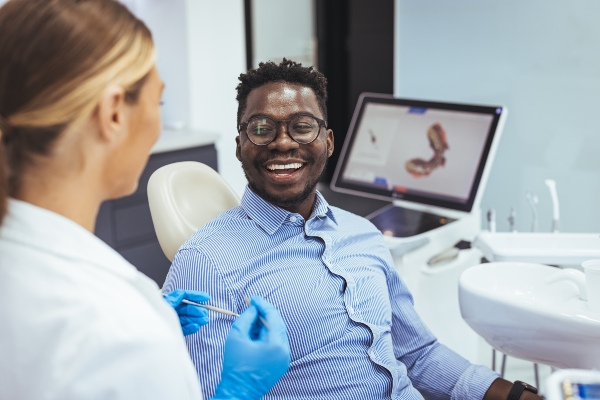When is Oral Surgery Recommended?

The idea of undergoing oral surgery might make you nervous, even if you have not had any negative experiences. An experienced and friendly dentist is handling your case will be able to help put you at ease. You might need to undergo oral surgery for different reasons, such as if you need treatment for a defect, injury or other condition affecting the oral cavity and its surrounding structures. The dentist will recommend oral surgery in any of the following cases; continue reading to know when a dentist might recommend oral surgery.
The need for oral surgery
Tooth extraction
Removing a tooth is not always as simple as prying it out of its socket. If a tooth is impacted, meaning trapped in the gum and unable to erupt because there is no space to accommodate it, the dentist will recommend oral surgery.
This condition mostly affects the last molars, otherwise called the wisdom teeth. Another situation that might require surgical tooth extraction is if a tooth is broken close to the gumline. The process often requires cutting into the gums and jawbone to reach the affected tooth.
Placement of dental implants
A dental implant is a titanium post that replaces the root of a lost tooth and supports a replacement tooth. The implant is inserted into the jawbone and is given some time to heal and integrate with the jawbone. The general dentist will attach a porcelain crown to the implant after osseointegration.
Bone grafts
Before placing dental implants, the dentist will check if there is enough bone mass to hold them. Some patients have lost bone mass due to injury, trauma, infection or prolonged tooth loss. The dentist can use bone grafts to augment the bone’s volume and density. This will not only make the patient eligible for implants but also restore the facial structure.
Sinus lifts
This involves different methods of thickening the bone of the upper jawbone (posterior maxilla). If the bone has thinned or never had enough thickness, it is impossible to place implants in the upper jaw without potentially penetrating the open area (sinus) above. Much like in bone graft techniques, the dentist can stimulate bone growth in the area to make it thicker.
Repair of jaw disorders
Jaw disorders may include congenital deformities, bone infections, trauma due to an accident or issues with the temporomandibular joints (or TMJ). The procedure is done to restore normal jaw function and appearance and help patients live pain-free lives.
Gum surgery
If a patient has severe gum disease and regular scaling and cleaning treatments are not enough to solve the problem, the dentist may recommend a gum surgery procedure. This usually involves making incisions into the gum tissue to reach the roots and deep areas of the bone and may require grafting bone and soft tissues.
In conclusion
If the dentist has recommended oral surgery, they will guide you through the entire process and provide instructions for you to follow. It is usually necessary to treat an oral condition, stop an infection and improve the smile’s appearance. Book an appointment with the general dentist to learn more.
Request an appointment here: https://www.carolinasmilesdentist.com or call Carolina Smiles Family Dental at (828) 974-3326 for an appointment in our Brevard office.
Check out what others are saying about our services on Yelp: Read our Yelp reviews.
Recent Posts
A smile makeover can be achieved with the help of one procedure or several. What a dentist recommends depends on the attributes of your smile you would like to change. To give you a better picture of some treatments that can transform a smile, take a look at these five popular treatments.Slight to moderate misalignments…
Having a healthy and attractive smile not only transforms your appearance but also boosts your confidence. A smile makeover combines cosmetic dental procedures that are tailored to your unique needs and treatment goals. If you have been wondering if you have been contemplating whether a smile makeover is right for you, here are five reasons…
Dental implants feel and function just like natural teeth, and they can last a lifetime. An implant is a rod or screw that is placed in the jawbone. It is usually made out of titanium, but it can also be made out of zirconium.Dental implants replace missing teeth roots, and restorations like crowns are placed…
Getting a smile makeover means getting at least one type of cosmetic dental treatment. You may want to improve your smile, but along with these treatments is the benefit of better oral health. Finding out more about this makeover can help you make informed decisions. Here are the details to consider about a smile makeover.The…


